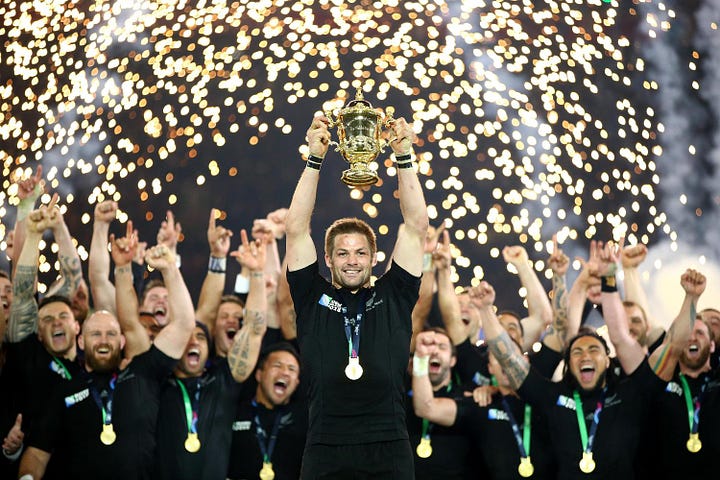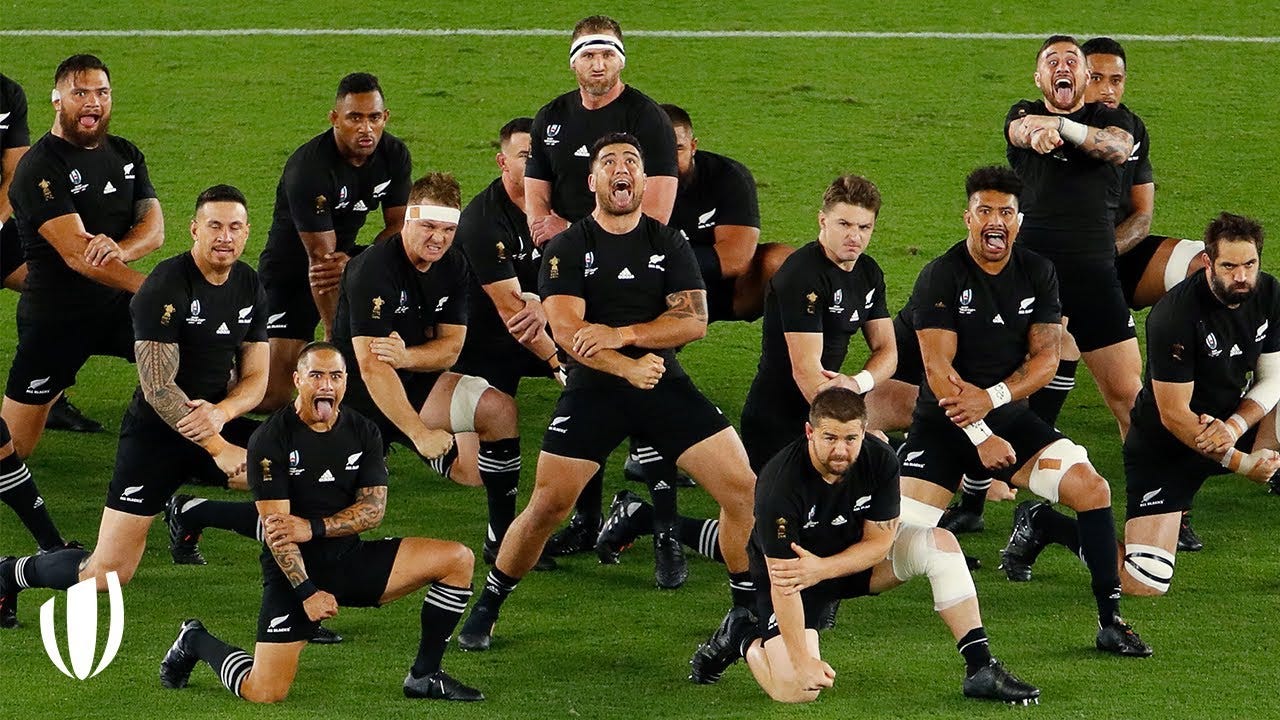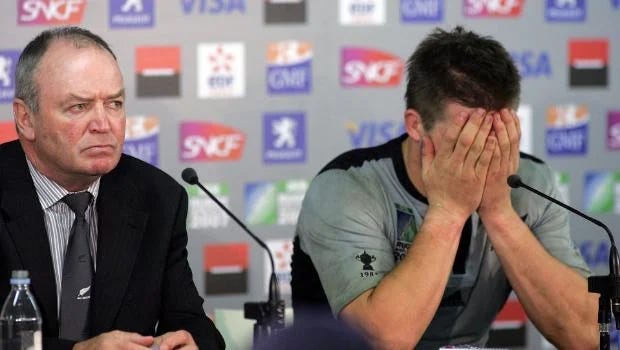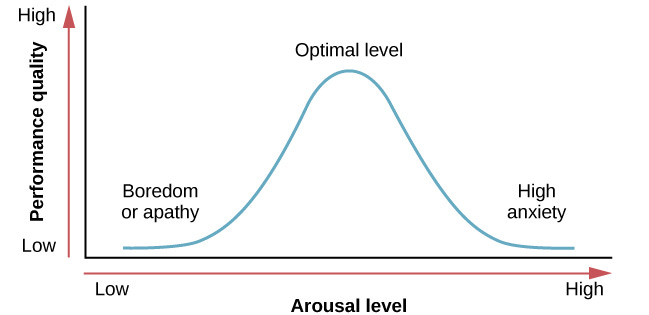I’ve held off telling this story because I hated losing to the All Blacks.
No matter how hard we trained, I rarely felt confident we’d beat them. And rarely did.
And because of that, I have immense respect for how they played the game, and feel fortunate for what they taught me about performance.
In case you don’t know, the All Blacks are rugby’s most successful team, with an 80% winning record over more than a century.
But even they’ve had some tough times and were once know as rugby’s “chokers”.
After winning the first Rugby World Cup in 1987 on home soil, they lost in 1991 to us (Australia), and again in 1995 to a Mandela inspired South Africa. Which wasn’t too bad for the Rugby mad nation.


But at the 1999 World Cup, they were strong favourites and were upset by France in the semi-final after blowing a big lead.
Then were upset again in 2003, this time to us in the semi-final, despite having thrashed us earlier that year.
And that’s when the “choker” tag started to stick.
Keen to get rid of the tag, they decided to try something new in the lead up to the 2007 Cup to help them deal with the pressure of finals rugby.
Their decision: to pull their top players out of Super Rugby for intense fitness training, citing a lack of it being the reason why they crumbled in key moments.
But they bowed out again to France in the quarter final despite being super fit and strong favourites, leaving captain Richie McCaw and the rugby nation shattered. (See McCaw’s post game interview here).
The pain from the loss promoted McCaw to reflect, and admit that despite their talent, when the heat came on, they were unable to find a way to win.
Something had to change and McCaw knew they needed to address the elephant in the room and get better at the mental side of the game. And not sweat more doing fitness.
So the coach brought in psychologist Dr. Ceri Evans to work with the team, teaching them about what stress does to the brain, and how to control the mind during stressful times.
He trained them to stay process-focused, and not jump to outcomes, and ultimately how to be a team that not only survived under pressure, but thrived in it.
He also helped players develop their own “reset buttons” to get centred during games, because to play your best, you need a balance of being calm (for decision making) and fired up (aroused) to smash your opponent.
Finding this balance is hard and something I really struggled with.
As for reset buttons, McCaw would stamp his foot to ground himself whenever he felt overwhelmed. And Kieran Read would focus on the black dot of the goalpost during a break in play, and these cues, along with keeping their heads up, helped them get back to centre and perform at their best when the stress built.
McCaw also reflected on his leadership.
Evans helped me realise he was an over-thinker, and challenge his belief that in big games, he simply needed to play better to lead better.
But the 2007 loss forced McCaw to admit he didn’t have the tools to lead a team under pressure, and would go quiet over-thinking.
This self-reflection I think was the catalyst for what happened next, which you can probably guess if you don’t know.


After beating us convincing in the semi, they went on to win the 2011 World Cup, beating France 8-7 in a nail-biting final.
Then they became the first team to win back-to-back World Cups, taking the 2015 title with close wins over us, South Africa, and flogging France along the way.
I feel fortunate for all the lesson Rugby taught me.
But learning how the All Blacks dealt with pressure is one of the most valuable and applicable lessons I took from Rugby for life after it. So thank you.
Still wish we’d beaten them a few more times though lol
I’m telling this story for the first time to Warner Music staff next week and wanted to test it here first and would love to know what you think.
Is this lesson is useful? And is the story clear?
Watch more:







Further to that BA, I got asked a lot when I got back from Aussie, how McCaw would have done at the Wallabies, given I'd known him since he was a kid and had had a lot to do with him at both the all blacks and Crusaders. My answer was not much better than the leaders we had. Why: because you are only as good as your lieutenants, they are your drivers, just as second tier management are key for successful executives. McCaw had some great lieutenants he wouldn't have had had he led the Wallabies at the time. Don't be fooled by the propaganda, they had their share of dickheads too, the difference was at times during that era (but not all of the time, think Guildford amongst others), the senior players dealt with it in a way we never had. Imagine how good Quade, Rabbit and KB would have been had the senior player group pushed them and kept them in line in their early years. They could have been frightening good because the talent and confidence was already there. But the discipline wasn't. And they were never what they could have been as a result.
Great story which critically outlines the process of resetting when the game isn't going your way. The mind game.
However it's missing a few important points.
Firstly, it's just a game and it follows that sometimes the loser actually plays very well but simply lost... a just missed penalty in the last seconds of the game will be reflected on the score board. Has your life been adversely affected because you lost a few games? I doubt it.
Secondly, sometimes the opposition played better and thoroughly deserved their win. That's life, accept it.
James Mathers